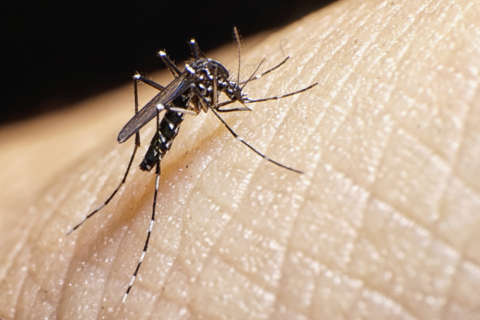WASHINGTON — Maryland officials say they have begun efforts to combat mosquitoes for the summer and are working to prevent the spread of Zika, a virus transmitted to humans by infected mosquitoes.
Maryland Agriculture Secretary Joe Bartenfelder said in a statement Tuesday that the Zika virus continues to be a “major public health concern.”
State officials will work to eliminate potential breeding grounds for mosquitoes and will spray pesticides to control the population.
“We spray typically either at dusk or dawn which are when the mosquitoes are most active,” said spokesman Jason Schellhardt with the agriculture department. “Our goal is to make sure that we are keeping mosquito-borne disease out of Maryland.”
According to the Centers for Disease Control and Prevention, there have been 135 Zika cases in Maryland since 2015.
Virginia recorded 115 cases and D.C. 43, according to the CDC. Numbers gathered by local health departments may be different from those reported by the CDC due to variations in methodology.
All cases in the D.C. region have been associated with travel to areas where the disease has been actively transmitted.
There have been reports of limited, local mosquito-borne transmission of Zika virus in certain areas of the U.S., but no such transmission has been identified in Maryland, Virginia or the District.
The mosquito control program that started in Maryland this week is expected to run through early October.
In Virginia, there is no state-run program because individual jurisdictions are responsible for controlling mosquitoes.
There have been more than 5,000 cases of Zika nationwide since 2015, according to the CDC.
Most people who have become infected traveled to Zika-affected areas, which include Central and South America, Mexico and the Caribbean. Some have become infected after having sexual contact with someone who traveled to a Zika-affected area.
The most common symptoms of Zika are fever, rash, joint pain or red eyes.
For pregnant women, Zika can lead to complications, including a condition called microcephaly. Microcephaly is a birth defect where a baby’s head is smaller than expected when compared to babies of the same sex and age.
The Associated Press contributed to this report.







